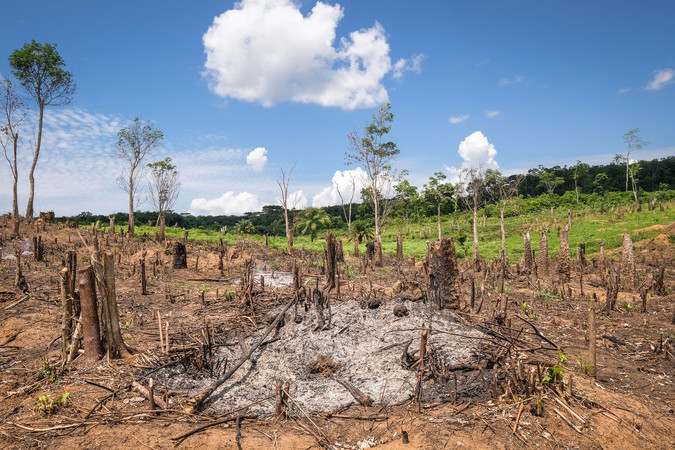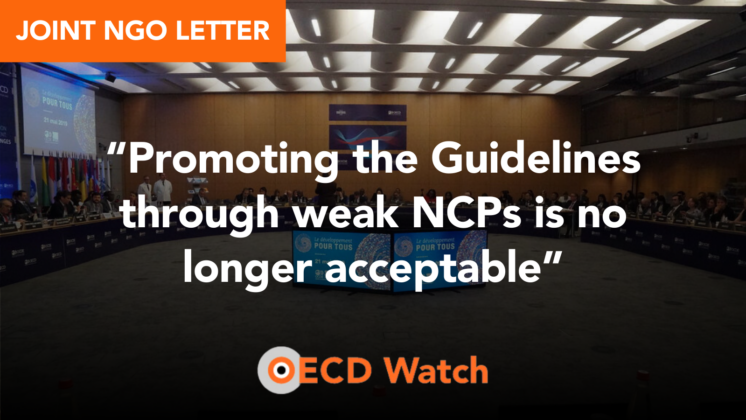On 25 January 2022, the Organisation for Economic Co-operation and Development (OECD) announced that it would open accession discussions with six countries: Argentina, Brazil, Bulgaria, Croatia, Peru, and Romania.

OECD Watch, Conectas, and the International Federation for Human Rights (FIDH), have released a guide for civil society explaining in detail how the OECD accession process works and highlighting key moments and methods for civil society advocacy to leverage the political and technical process to demand major reforms in candidate states. The guide is available in English, Spanish, and Portuguese.
The OECD accession process can be thought of in three phases: pre-accession, accession, and post-accession.
- The pre-accession period involves opaque political debate over whether a candidate state will be invited to begin an accession. This stage is difficult for civil society to influence – though we lay out suggestions for NGOs who may be focused on countries at this stage.
- The accession process itself is the key period in which civil society advocacy is important. This is the stage the six named countries have just entered. At the start of accession, the OECD provides each state a generic “roadmap” setting out the basic steps for accession. Then, relevant OECD committees begin a rigorous technical review of the candidate’s compliance with OECD instruments, standards, and – critically, values including on rule of law, human rights, and the environment. Committees can and do regularly ask states to take on major reforms in order to be deemed ready for accession. The goal of advocacy is to motivate OECD member governments and committees to demand, as terms of accession, strong reforms benefiting people and the planet as conditions/pre-requisites of membership – and to deny membership if a state does not meet those terms.
- Post-accession: even if a state has been offered membership, committees may assign ongoing reform requirements to the new member, and will monitor whether those reforms are met.
The guide from OECD Watch, Conectas, and FIDH explains in detail:
- What the OECD is, why membership is important for states, and why accession can provide a useful tool for civil society to achieve reforms in candidate states;
- How the three phases of accession work; and
- What steps civil society can take, when, and towards which actors, to demand rigorous terms and a rigorous review for the candidate state.
OECD Watch and its partners’ view on the potential for leveraging the upcoming six accessions
To join the OECD, candidate states must prove themselves “willing, prepared, and able to adopt OECD practices, policies, and standards” across a wide range of governance areas. Accession as it traditionally was granted – with little focus on democratic values and more attention to liberalising investment markets – would be disastrous in the case of Brazil and some of the other five candidate countries.
But the OECD’s recent messaging suggests the chance for a better – more values-focused – process. Recently, the OECD has placed great value on “preserving [the] like-minded nature” of its member states. In October 2021, it declared that “Members will be guided by the high standards of our shared values” – listing transparency and accountability of governments, the rule of law, the protection of human rights, and the promotion of environmental sustainability among these – “when deciding whether to open accession discussions.” And in its January 2022 accession invitation, the OECD emphasised again its focus on members’ shared values on “the rule of law and the protection of human rights” and “their goals to tackle climate change, including halting and reversing biodiversity loss and deforestation.”
It is not yet clear how these words will be translated into tangible action during the accession process. OECD Watch, Conectas, and FIDH are urging the OECD to approach these accession processes differently than they have done in the past. We call on OECD member governments to take the OECD’s stated values seriously and grant membership only if and when the countries have earned it.
About OECD Watch
OECD Watch is a global network with over 130 member organisations in more than 50 countries. Founded in 2003, OECD Watch’s primary aim is to help support CSO activities related to the OECD Guidelines and the work of the OECD’s Investment Committee. Membership consists of a diverse range of civil society organisations – from human rights to environmental and development organisations, from grassroots groups to large, international NGOs – bound together by their commitment to ensuring that business activity contributes to sustainable development and poverty eradication, and that corporations are held accountable for their adverse impacts around the globe. For more information, please visit www.oecdwatch.org.
About Conectas
Conectas exists to preserve, implement and extend human rights. More than a non-governmental organisation, we are part of a lively and global movement that continues in the fight for equal rights. Connected via a broad network of partners, spread across Brazil and around the world, we are always available, and we participate in various decision-making debates that advance the path of human rights from the Global South perspective. We work to secure and extend the rights of all, especially the most vulnerable. We propose solutions, avert setbacks, and denounce violations to create transformations.
About FIDH
FIDH (International Federation for Human Rights) is an international human rights NGO federating 192 organisations from 117 countries. Since 1922, FIDH has been defending all civil, political, economic, social and cultural rights as set out in the Universal Declaration of Human Rights. FIDH acts at national, regional and international levels in support of its member and partner organisations to address human rights abuses, including ensuring corporate accountability and improve victims’ access to justice through documentation, advocacy and litigation.
Photo credit: Kate Evans / CIFOR via Flickr CC













